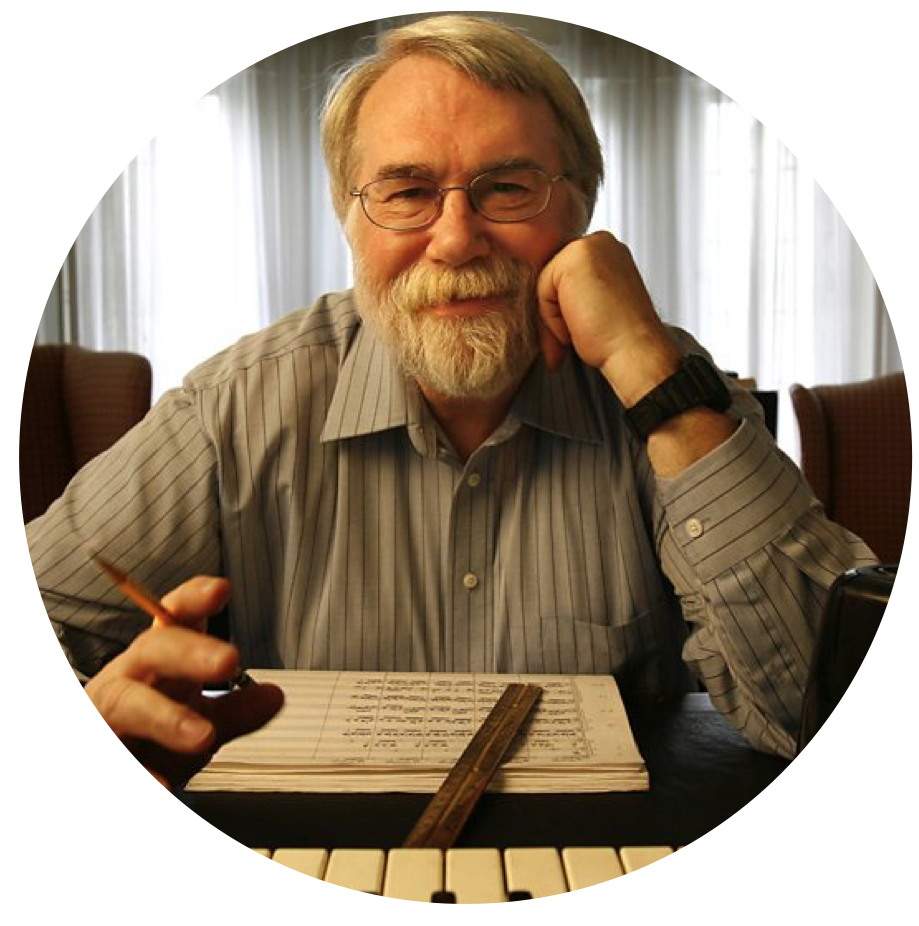On Christopher Rouse
Even in this very small world of music composition, where everyone seems to have met everyone, I never got around to meeting Christopher Rouse in any professional capacity. I did briefly speak to him after a performance of his beautifully haunting piece Iscariot by the New York Philharmonic a few years ago. Even in that short encounter, he was very kind and gracious to a young composer who was utterly tongue-tied and doesn’t remember a thing he said. That being said, I find it difficult to lend my voice to the sea of very personal remembrances that are being written on social media today. These personal stories only further illuminate my admiration for what I believed Rouse the man to be. I can only speak as a musician and budding composer that looks up to him as a model for what I so desperately want to be.
There are a small handful of musicians and composers that I can say without a doubt made me want to be a composer in the first place. Mahler, John Adams, Leonard Bernstein, John Corigliano, and Christopher Rouse. When I was in high school, I purchased a library card from the University of North Carolina at Chapel Hill and started checking out tons of orchestral scores from their massive music library. Two of those first scores I checked out were Rouse’s Rapture and his Trombone Concerto. Like a lot of young American composers, there is the perceived notion that there are two composers; the kitchy ones that write “tonal” music and the serious composers that write “atonal” music. Though a completely ancient ideology (if it ever really was), I found in Rouse a compromise of sorts. I learned through those scores and countless others through the years that communication and expression above all else is what is important. Rouse was a true American romantic. Throughout those high school years and up until now (and I’m sure further on), I turn to Rouse as a composer unafraid to express something powerfully. Whether that means placing the thorniest of thorny harmonies into a piece or writing a traditional melody line that’s unapologetic in its simplicity and beauty, all of these are used to communicate and express something important to an audience.
Rouse was a composer of extremes. His music can be completely overwhelming in violence, brutality, and sheer volume (with Ligeti-esque fortissississississississimos) as in his unrelenting Gorgon from the mid 80’s and his recent Heimdall’s Trumpet (check that last chord). I remember audience members literally jumping out of their seats at the sudden whack of a Mahler-hammer at the opening of Iscariot. For god’s sake, I can’t think of a single composer who included a Mahler-hammer in almost every orchestral work they wrote for a solid decade. His music is also some of the most simple and beautiful written in the late 20th century as in the slow chorale from the third movement of his Flute Concerto or in the Agnus Dei from his criminally under performed Requiem. Most importantly, this huge range in harmonic language, formal design, and complexity are all in the service of expression. Rouse’s large toolbox of eclectic musical materials were all at disposal in order to express something, something in order to communicate in the deepest possible way to an audience.
Combing through Twitter and Facebook these last few hours, I’ve come across some beautiful stories about Christopher Rouse the person. I came across this quote from a 1994 interview with Bruce Duffie that basically puts what I’m trying to say in better terms…
“…simply saying, “Well, I’ve expressed myself, now, thank you. Here it is. I don’t care what you think,” is not enough for me. It’s not enough to be satisfied with just satisfying yourself. There is almost a social obligation that a composer has to create something that fills a need for society. And one hopes it will not speak just to the composer’s own time and place but will be something that is broad-based enough in its meaning so that it will convey important things to successive generations. Beethoven’s music certainly does that; so does Mozart’s, Mahler’s, etc. It is important for us to consider an audience, and if you have satisfied yourself, that’s a beginning, but always keep in mind that we are not simply isolated figures. We are members of a culture, members of a society, and just as a bard had the obligation to sing songs for the edification of his fellow man, so too I think creative artists now need to think in terms beyond simply their own needs. The pithiest way to put it is that I don’t think that the creation of any work of art is purely an act of masturbation. It needs to be a shared act, more like love making than masturbation. It’s important that we recognize that there is an audience and that they’re a very important part of the equation. We need to recognize that we do almost have something akin to a social responsibility on their behalf, though never at the expense of our own sense of integrity.”
